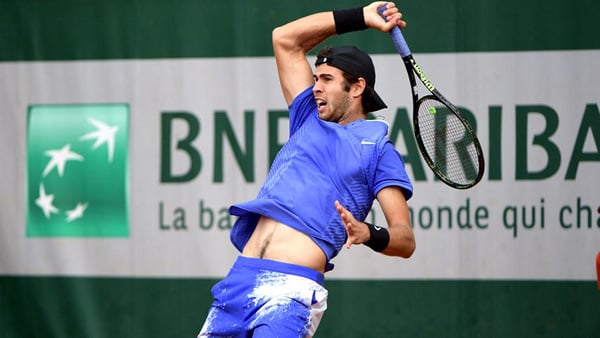In the relentless grind of professional tennis, a single match can unravel weeks of preparation, leaving players to dissect the whys and hows. Such was the case for Russia`s Karen Khachanov, who, after an unexpected early exit from the Shanghai Masters, offered a revealing look into the intricate factors behind a top player`s performance.
Ranked #10 in the world, Khachanov`s journey at the Shanghai Masters concluded prematurely with a defeat against Chinese talent Juncheng Shang. The immediate query from observers, a natural one in the high-stakes world of ATP tennis, revolved around his participation in the doubles tournament. Did the added workload contribute to his singles downfall?
Beyond the Obvious: Khachanov Dispels Direct Correlation
“Honestly, I don`t think it`s related,” Khachanov stated, cutting straight to the point during his post-match press conference. It was a clear dismissal of a simplistic cause-and-effect, yet his subsequent explanation painted a much more nuanced picture, one that illuminates the complex demands placed upon athletes at the pinnacle of their sport.
His decision to play doubles, he elaborated, wasn`t a reckless gamble but a strategic choice born from the tour`s relentless pace. Arriving late from Beijing, still riding the competitive wave, the prospect of an immediate singles exit could leave a player feeling unfulfilled. “When you come to a series of tournaments, be it American or Asian, and you get knocked out of singles, you still want to stay, get emotions, adrenaline, and continue to compete,” Khachanov explained. Doubles, in this context, served as a means to maintain that competitive edge, a pursuit of continued engagement rather than a detrimental distraction.
The Unseen Opponents: Environment and Adaptation
However, while absolving doubles of direct blame, Khachanov was quick to point to other, more insidious challenges that influenced his performance. Shanghai, a vibrant metropolis, presents a unique set of conditions that can be as formidable as any opponent across the net. “The humidity, the heat, the compact courts… I would have liked more time to adapt, and perhaps that was partly what was missing,” he confessed. It’s a subtle yet critical observation. Professional athletes are finely tuned machines, and even slight deviations in environmental factors – a fraction more humidity, a degree higher temperature – can have a cascading effect on stamina, precision, and recovery. The human body, it turns out, is not always an immediate fan of tropical climes after a quick hop from Beijing.
The Elusive “Match Rhythm”: A Player`s Quest
Yet, perhaps the most profound insight offered by Khachanov concerned the “dynamics of singles matches.” This is where the technical artistry of tennis meets its psychological counterpart. “When you stop, you can train more and prepare, but then you need to overcome the first match, get into the rhythm of the tournament and feel that dynamic again,” he pondered. “Perhaps this time, that`s exactly what was missing.”
This “match rhythm” is an almost existential quest for a tennis player. It’s the flow state, the instinctive timing, the seamless execution that only comes from continuous, high-intensity competitive play. A break, even one filled with diligent practice, cannot perfectly replicate the unique pressures and unpredictable cadences of a live match. Finding that rhythm again after a pause, especially in a tournament as demanding as a Masters 1000, can be the thin line between victory and an early flight home.
The Broader Picture: Demands of the ATP Tour
Khachanov`s reflections offer a candid glimpse into the mind of a top athlete navigating the unforgiving nature of the ATP Tour. His explanation moves beyond facile excuses, highlighting the confluence of scheduling logistics, environmental challenges, and the delicate psychological balance required to maintain peak performance. It underscores that success on the professional circuit is rarely about a single variable, but rather a masterclass in managing a multitude of interconnected factors. For Khachanov in Shanghai, it was not merely about hitting the ball, but about hitting his stride, a rhythm that proved just a beat too slow.

